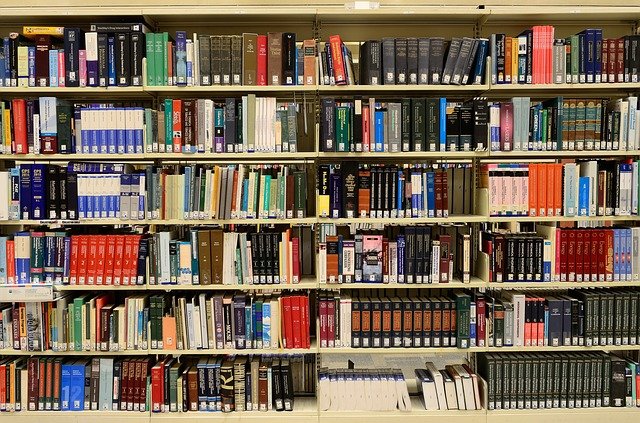Experiencia, reflexión y profesionalización el doble juego del enfoque de la práctica reflexiva en la formación de maestros
Barra lateral del artículo

Cómo citar
Detalles del artículo

Esta obra está bajo una licencia internacional Creative Commons Atribución-NoComercial 4.0.
Contenido principal del artículo
Resumen
Este artículo, derivado de una investigación, presenta un análisis de la serie experiencia–reflexión–profesionalización en relación con el enfoque de práctica reflexiva en el campo de la formación de maestros. Con base en el análisis de 90 publicaciones nacionales e internacionales publicadas entre el 2000 y el 2019, se realiza una lectura en clave de diagrama que establece el lugar de fuerzas que se ha tejido entre estos conceptos y las tensiones que han activado. Se presentan los hallazgos en dos grandes categorías, la relación reflexión–profesionalización, y la relación reflexión–experiencia. En conclusión, se reconoce el doble juego en el cual entra la reflexión, lo que la dotado de una polivalencia táctica que le permite apropiase de diferentes maneras en el contexto local según sean las procedencias que se identifiquen.
Referencias
Avalos, B. (2009). Los conocimientos y las competencias que subyacen a la tarea docente. En C. Vélaz de Medrano y D. Vaillant (coords.), Aprendizaje y desarrollo profesional docente (pp. 67-77). Fundación Santillana; Organización de Estados Iberoamericanos para la Educación, la Ciencia y la Cultura (OEI). http://www.redfforma.cl/documentos_sitio/86855_APRENDYDESARRPROFESIONAL-2.pdf
Brookfield, S. D. (1995). Becoming a critically reflective teacher. Jossey-Bass Publishers.
Contreras Domingo, J. (2011). La autonomía del profesorado (4.a ed.). Ediciones Morata.
De Lella, C. (1999). Modelos y tendencias de la formación docente. En I Seminario Taller sobre Perfil del Docente y Estrategias de Formación, Lima, Perú. https://www.oei.es/historico/cayetano.htm
Deleuze, G. (2014). El poder: curso sobre Foucault (tomo II). Trad. Pablo Ires y Sebastián Puente Editorial Cactus.
Dewey, J. (1938). Experiencie and Education. Collier MacMillan Company.
Dewey, J. (2007[1933]). Cómo pensamos. Nueva exposición de la relación entre pensamiento reflexivo y proceso educativo. Ediciones Paidós.
Domingo, À. (2013). Práctica reflexiva para docentes. De la reflexión ocasional a la reflexión metodológica. Editorial Publicia.
Elliot, J. (1990). La investigación-acción en educación. Ediciones Morata.
Erazo-Jiménez, M. S. (2009). Práctica reflexiva como estrategia de desarrollo profesional: presencia y estructura en reuniones docentes. Educación y Educadores, 12(2), 47–74. http://educacionyeducadores.unisabana.edu.co/index.php/eye/article/view/1485
Field, K. (1997). You and your mentor. Mentoring & Tutoring: Partnership in Learning, 4(3), 25-32.
Gilroy, P. (1993). Reflections of Schon: an epistemological critique and a practical alternative. Journal of Education for Teaching, 19(4), 125-142. https://doi.org/10.1080/0260747930190413
Giroux, H. A. (1990). Los profesores como intelectuales. Paidós.
Grimmett, P. P. (1989). A commentary on schon’s view of reflection. Journal of Curriculum and Supervision, 5(1), 19-28.
Harrison, J. K., Lawson, T., & Wortley, A. (2005). Mentoring the beginning teacher: developing professional autonomy through critical reflection on practice. Reflective Practice, 6(3), 419-441. https://doi.org/10.1080/14623940500220277
Kemmis, S. (1985). Action research and the politics of reflection. En D. Boud, R. Keogh, & D. Walker (eds.), Reflection: Turning experience into learning (pp. 139-163). Routledge Falmer.
Korthagen, F. A., & Kessels, J. P. (1999). Linking theory and practice: changing the pedagogy of teacher education. Educational Researcher, 28(4), 4-17. https://doi.org/10.3102/0013189X028004004
McLaren, P. (1997). Pedagogía crítica y cultura depredadora. Políticas de oposición en la era posmoderna. Paidós Educador.
Ministerio de Educación Nacional de Chile. (2008). Marco para la Buena Enseñanza. Centro de Perfeccionamiento, Experimentación e Investigaciones Pedagógicas (CPEIP). https://www.docentemas.cl/docs/MBE2008.pdf
Organisation for Economic Co-operation and Development (OECD). (2005). Teachers matter: attracting, developing and retaining effective teachers. OECD. https://doi.org/10.1787/9789264022157-ja
Pérez Gómez, Á. (1992). La función y formación del profesor/a en la enseñanza para la comprensión. Diferentes perspectivas. En J. Gimeno Sacristán y A. I. Pérez Gómez, Comprender y transformar la enseñanza (pp. 398-429). Ediciones Morata. https://ariselaortega.files.wordpress.com/2013/11/2-comprender-y-transformar-la-ensec3b1anza-sacristc3a1n.pdf
Perrenoud, P. (2004). Desarrollar la práctica reflexiva en el oficio de enseñar. Editorial Graó.
Porlán, R. (1995). Constructivismo y escuela: Hacia un modelo de enseñanza-aprendizaje basado en la investigación. Diada Editores S.L.
Rodgers, C. (2002). Defining reflection: another look at John Dewey and reflective thinking. Teachers College Record, 104(4), 842–866.
Schon, D. (1983). The reflective practitioner. Basic Books.
Schulz, R. (2005). The practicum: more than practice. Canadian Journal of Education, 28(1/2), 147-167. https://doi.org/10.2307/1602158
Souto, M. (2017). Pliegues de la formación: sentidos y herramientas para la formación docente. Homo Sapiens Ediciones.
Stenhouse, L. (1998). La investigación como base de la enseñanza. Trad Guillermo Solana. Ediciones Morata.
Stronge, J. H. (2002). Qualities of effective teachers. Association for Supervision and Curriculum Development.
Tarrant, P. (2013). Reflective practice and professional development. Sage Publications.
Thompson, N., & Pascal, J. (2012). Developing critically reflective practice. Reflective Practice, 13(2), 311-325. https://doi.org/10.1080/14623943.2012.657795
Torres, R. M. (1998). Nuevo rol docente. ¿Qué modelo de formación y para qué modelo educativo? Revista Colombiana de Educación, (47), 1-19. https://doi.org/10.17227/01203916.5512
Vaillant, D. (2013). Formación inicial del profesorado en América Latina: dilemas centrales y perspectivas. Revista Española de Educación Comparada, (22), 185-206. https://doi.org/10.5944/reec.22.2013.9329
Valk, T. V., & Somers, T. (1996). Commuting between practice and theory in an immersion teacher education program Theo Wubbels and Fred Korthagen. En The Annual Meeting of the American Educational Research Association (p. 16). American Educational Research Association.
Zabalza, M. Á. (2004). Diarios de clase: un instrumento de investigación y desarrollo profesional. Narcea Ediciones.
Zehm, S. J., & Kottler, J. A. (1993). On being a teacher. The human dimension. Corwin Press, Inc.
Zeichner, K. M. (1993). El maestro como profesional reflexivo. Cuadernos de Pedagogía, (220), 44-49. https://dialnet.unirioja.es/servlet/articulo?codigo=35675
Zeichner, K. M., & Liston, D. P. (1990). Traditions of Reform in U.S. Teacher Education. Journal of Teacher Education, 41(2), 3-20. https://doi.org/10.1177/002248719004100202
Zink, R., & Dyson, M. (2009). What does it mean when they don’t seem to learn from experience? Cambridge Journal of Education, 39(2), 163-174. https://doi.org/10.1080/03057640902905388
Artículos más leídos del mismo autor/a
- Miguel Ángel Martínez Velasco, Rosa María Bolívar Osorio, Liliana Olga Sanjurjo, Pedagogía y formación de maestros , Praxis Pedagógica: Vol. 21 Núm. 30 (2021): Dossier: Multiplicidad histórica de la pedagogía: lecturas sobre la formación de maestros
- Miguel Ángel Martínez Velasco, Rosa María Bolívar Osorio, Liliana Olga Sanjurjo, Multiplicidad de la pedagogía: entre conceptos e historias , Praxis Pedagógica: Vol. 21 Núm. 28 (2021): Dossier: Multiplicidad de la pedagogía: lecturas históricas y conceptuales




